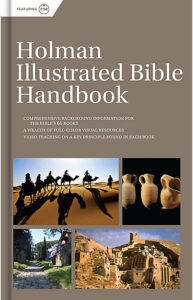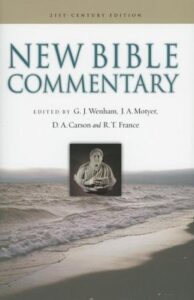TEACHING TEAM RESOURCES
Lighthouse Community is unique in the fact that our Sunday morning sermons are prepared in community.
Here’s a quick fly-by on our process…
- Elders meet annually to pray, fast, and discern the Holy Spirit’s leading for teaching in the coming year. This team meets to set the annual preaching calendar.
- The senior pastor creates teams that develop each sermon series, creating a “series graph:” a document that provides an overview for a specific series and the breakdown of teaching each week along with other resources to guide brainstorming.
- The weekly teaching team meets to discuss the passage/sermon that will be taught three Sundays out. This is an open brainstorm identifying truth from Scripture and how that connects in our time and culture.
- The teacher who is teaching develops the sermon in their own time, using the graph, the discussion from teaching team, as well as other resources they have access to.
- The teacher teaches their sermon before Sunday at the Thursday Run-Through (Thursday @ 10am). A small team provides feedback in real time, helping to craft a more effective sermon.
- Following the Sunday morning teaching, the weekly teaching team provides feedback from the Sunday morning sermon,
Below is a process and resources that may be helpful for members of the teaching team to use as you prepare for weekly teaching team..
1. Pray Before You Begin and Throughout
Spend time in silence before the Lord. Let the reality that God loves you wash over you and overwhelm you. Enjoy the fact that you belong to Him as a son/daughter. Know that you are not loved more because you spend time preparing for teaching team or the amount of insights you may provide. You are loved because God chose to do so.
Invite the Holy Spirit to lead you in His truth through His Scripture. More than figuring out how to teach this to others, invite the Bible to speak into YOUR LIFE. Invite this passage to transform your life first.
2. Read the Main Passage Once
Reading the passage out loud causes you to hear the words and the sentence structure differently than only reading it in your mind. After you read this first time, go to the introduction of that book in your study Bible. Look for the answer to questions like…
- What is the genre of this book? (Narrative history, epistle, prophecy, etc)
- Who wrote this book? When? WHY?
- Who was it to? What was that region like?
- Where does this writing fit in God’s larger work in redemptive history? (Before the law was revealed/after, during the exile, Before Christ/after, etc)
One resource you may find helpful is: The Holman Illustrated Bible Handbook.
3. Read the Main Passage Again
Read the main passage again. As you read this time, begin looking to create an OBSERVATIONAL OUTLINE.
An observational outline is identifying what is being said in an outline form. Chunk the verses into smaller sections that are related in thought. Identify the main themes and how the supporting verses develop that idea. In doing this, you’re summarizing the verse and taking note of natural thought transitions.
Here’s an example from Hebrews 3:1-19
- Jesus is greater than Moses (3:1-6)
- Jesus is an apostle and high priest
- Jesus and Moses were both faithful to God
- Jesus is greater because He is God, who built everything
- Jesus is a Son; Moses was a servant
- IMPLICATION: Believers are Christ’s household IF we hold on to confidence and hope
- Warning from Israel’s history (3:7-19)
- Quote from Psalm 95:7-11
- Recall back to Ex 17 & Nm 20:2-13 (complaining for water: complaining & quarreling)
- That generation did not enter the Promised Land because of unbelief
- Don’t be like that generation; INSTEAD encourage each other daily to hold on
- Rhetorical questions reminding the readers of the consequences of unbelief
- IMPLICATION: Returning to Judaism or rejecting Jesus is a disqualifying decision
- Quote from Psalm 95:7-11
4. Read the Main Passage Again
As you read through the third time, identify repeated words, important words, or words that you’re not quite sure of the meaning.
Doing a word study on 1-5 important words will provide a wider grip on what God was communicating. A basic word study looks like this…
- WORD
- Definition in English
- How do other versions translate this word?
- Definition in Hebrew/Greek
- How this word is used in other Bible passages
- Other info from Bible dictionary
- Implication/Application based on this word in the context of the passage
ONLINE TOOLS FOR WORD STUDY
English Dictionary:
Multiple translations:
Hebrew/Greek Lexicon:
Concordance (for lookup in other passages):
Bible Dictionary:
5. Read the Main Passage Again
Read the main passage for the fourth time. This time, identify key truths about God: Father, Son, Holy Spirit. What does this passage explicitly say about who God is or what God does? How does this passage reveal the character of God? Write down these statements.
Then think about the implications of these key truths about God. Using Hebrews 3, why would it be important for me to know that Jesus is greater than Moses? How does it affect my life and faith that God is the Builder/Creator of everything? That Christ is God’s Son?
Why would you think about the implications of truth about God? Truth about God is not only to be known or memorized, but understood and lead to wisdom in how we relate to God and others.
6. Read the Main Passage Again
Are you identifying a theme of reading and re-reading the passage when you study for teaching?
This fifth time through, spend time listing out any:
- COMMANDS TO OBEY – “you should…”; “don’t do this…”
- TRUTH TO BELIEVE – “you are adopted in Christ”; “you have a share with Christ in all His inheritance”
- SIN TO CONFESS – ways you believe, think, or live in opposition to the passage
As you identify commands and truth, take time to think about tensions on conflicts this raises with various people. How might the person who has no problem getting drunk rationalize away the command in Ephesians to not get drunk on wine? How might a high school student think about being adopted in Christ? This activity invites you to enter into the minds and situations of the people who may hear this passage taught.
7. Consult 1-2 Commentaries.
Commentaries can be a helpful resource in your study. Resist going to these first. Use them only to see if you are in the general area that this scholar is in or look for additional insights that might help you understand this passage more.
There are different kinds of commentaries. Some are devotionally written – these are the thoughts and applications of the author. Some are language focused – breaking down word meanings, syntax, and sentence structure. Some are focused on historical context. Others a giving broad brushstrokes.
There are single-volume commentaries (commentary on all the books of the Bible in one book) and multi-volume commentaries (each book of the Bible has its own book of commentary). Be aware that each commentary comes with a theological and even cultural slant. Commentaries are not the Bible nor are they infallible, but they can add more nuanced insight.
8. Locate Helpful Cross-References
A study Bible comes in especially handy here. Most will identify cross-references to others passages that include the same words or speak on the same topic/theme but from a different perspective. You likely have some already from your word studies.
The Holy Spirit may bring other passages to your mind that will inform your understanding of the main passage.
As you read various cross-reference passages, think about how they help you understand your main passage. Think about it in the way that sometimes you move from looking through the microscope, focused in tightly, to looking through your eye alone to get a larger picture and to see how all the pieces fit together.
It’s typically poor interpretation to build a theology off of one verse alone. Cross-referencing helps to see the entirety of scripture.
9. Identify The Gospel
All of Scripture ultimately points to Jesus. You shouldn’t go there immediately if the passage doesn’t start there. When you do, you may cross over into allegorical interpretation or read things into the passage that simply aren’t there. If you’ve done steps 1-8, you should already be seeing how your main passage reveals the gospel.
That revealing may come in different ways…
- How did/does Jesus fulfill the requirements/commands of this passage?
- How does this passage serve as a foreshadow or a copy of the true ministry of Jesus?
- Where does this showcase God’s power, man’s sin, Jesus’ sacrifice/resurrection, or man’s response to Christ’s work?
- How is Jesus the “better?” The better Abraham, David, Ezekiel, etc?
- How does this passage reveal that Christ has completed all the work for salvation on our behalf?
10. Brainstorm Potential Applications and Choose One
After identifying the gospel, this is the most critical outflow of your study time. What is this passage inviting us to do? How will we rely on God even more and learn to rely on ourselves or something else even less?
Application should be one simple sentence. Whittle it down to as brief as possible. It’s always easier to begin with a simple application that can be developed and include other aspects. It’s much more difficult to explain a complicated application.
The application could come from a command or truth in the passage. It could spring up from synthesizing all of your content from your study. A highly-related cross-reference might bring the application to light.
No matter where it comes from, always frame it in a way that is designed for the people you are teaching. Understanding your audience/church family is absolutely critical. Is our church family in a specific season of life? Have prayer requests from the church family been carrying a theme? What kinds of struggles/questions continually bubble up in small group discussion? What are people facing today?
When you application speaks to the situations people are facing today OR will likely face soon, this locks people in. Application work is critical. Sometimes, it’s also the most challenging.




